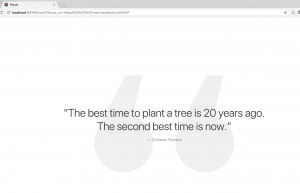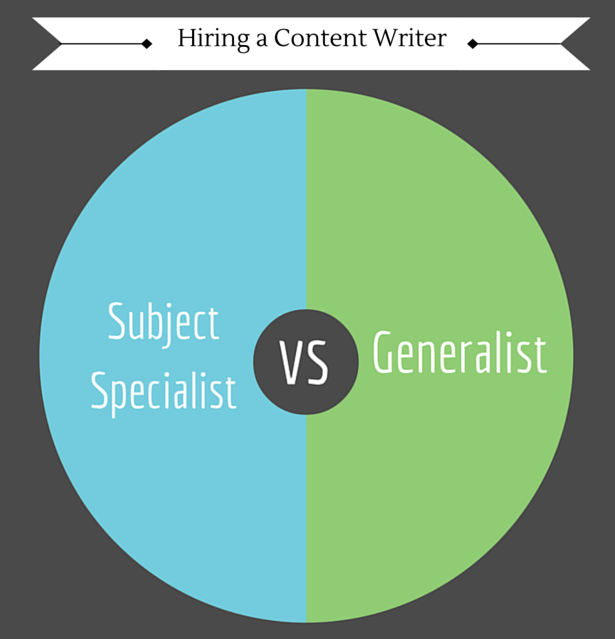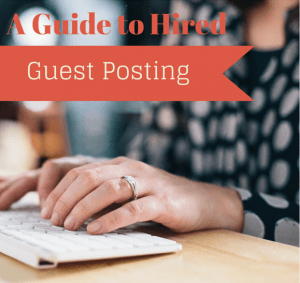Updated May 2022
Everyone needs the occasional sick day or mental health day. But for most of us, there’s a limit on how much time we can take off before we face career consequences. For writers, that sometimes means having to push through and do difficult, creative work on days where it’s hard.
This is a personal subject for me. For the past few years—predating COVID even—I’ve dealt with health issues that cause chronic fatigue. On top of that, I have many days where my brain is foiled by allergies (a bigger deal in Austin than the word “allergies” communicates to most people). But I run a business based around writing and I’ve had to keep it up on the bad days as well as the good.

Photo by Xavier Sotomayor on Unsplash
Over time, I’ve become used to keeping my work going when my brain and body just want to curl up in bed and avoid anything that requires mental energy. And writing takes a lot of mental energy. Yet, somehow I always meet my deadlines.
For others that struggle with similar issues—or different ones that affect your productivity in similar ways—I’m sharing what’s worked for me in the hopes that it might work for you.
It’s unlikely that every item on this list will be useful for every person reading it. But if you find that even just one thing here makes a difference, then that’s something.
1. Reshape your to-do list based on priority.
Most of us start off each day aiming to do more than we absolutely have to get done. In many contexts, that kind of ambition serves you well and helps you stay productive. But on the bad days, it starts to feel like a burden pressing down on you that makes it harder to get anything on the list done.
When you’re having an off day, an overwhelming to-do list isn’t doing you any favors. Carefully review the list and figure out which items on it can wait. You need the sparse energy you have for the writing that has to get done today. Move that to the top of the list and do it first. After the most important stuff is done, only then do whatever else you can manage. Or go ahead and give yourself the rest of the day off if you need it (and don’t feel guilty about it).
2. Analyze where your energy goes.
I’m a big proponent of focusing on energy management at least as much as time management. When you start paying close attention, you’ll realize that different types of work and activities require different levels of energy from you—and this is something that varies from person to person.
For anyone that regularly deals with low energy levels, knowing how to rework your calendar based on the amount of energy you have available is a crucial skill. But this is worthwhile even for people who don’t struggle with depression or illness. Tracking how your energy levels relate to the work you tackle each day will help you plan your weeks more efficiently. You can minimize tasks that require a disproportionate amount of energy for the value they bring to your work.
For instance, I’m extremely introverted. Adding a networking event to my day uses up a lot of the energy I have for work that day, even on a good day. I know to be strategic about when I plan to attend social events, and when to forego those plans when the energy just isn’t there.
Figure out how the typical tasks you have to deal with in a week compare in this regard so you know which ones to cut down on to conserve the energy you have.
3. Leave wiggle room in your schedule.
If you’re freelance like me, that will mean leaving money on the table, at least in the short term. But when you can’t predict what your days will be like, you have to plan your life in a way that anticipates bad days. And leaving wiggle room in your calendar means you’re much less likely to miss deadlines and disappoint clients, which adds up to more success in the long term.
This isn’t a tip that will help much if you woke up this morning feeling fatigued or depressed for the first time. But if it becomes something that happens regularly, then you have to start planning on it. Worst-case scenario, if you have nothing but good days for a while, that extra wiggle room gives you time to tackle all those tasks you tend to put off till later when you’re busy.
4. Use a social media blocker.
Seriously, it helps. Focusing on work requires energy. Scrolling Twitter doesn’t. The days I’m the most tired are the ones where I find it easiest to scroll for long periods of time without realizing it.
When your brain wants to be focusing on anything but the thing you need to be doing, that’s when social media has the most power. It’s probably not the only distraction in your life you have to grapple with, but it’s one you can do something about.
I use Focus. It costs a small fee, but it’s probably improved my productivity enough to cover its cost several times over. When you’re trying hard to focus and your brain won’t cooperate, getting a message that reminds you of your good intentions each time you try to pull up Facebook can be a helpful reminder to get back on track.
5. Create a ritual for starting work.
When the pandemic sparked a mass shift to remote work, some people were surprised to find that the commute they hated actually served a purpose they hadn’t realized: helping draw a line between their home life and work time. Psychologically, there’s value to having a ritual that delineates when it’s time to switch your brain into “work mode.”
This is a tip I got from Cal Newport’s Deep Work. To provide a tangible signal to my brain that it’s writing time, I put on headphones and pick some music or noise that helps with focus. For some people, that ritual could be taking a walk around the block, or getting your morning cup of coffee ready and settling in at your the desk. The ritual doesn’t have to be anything complicated, just something that creates enough of a routine that you can train your brain to recognize it as a signal to focus.
6. Try listening to music or white noise.
Some writers need absolute silence to focus, but for some of us the right kind of music or noise can help. Personally, I avoid anything with lyrics. But I find some instrumental music like movie and TV scores make for good background noise to write to. Sometimes when I worry even that might be too distracting, I find a white noise video on YouTube or turn to myNoise.
YouTube has tons of videos of pretty images set to music designed to help with focus (and as a side note, the comments on most of these videos are some of the nicest spaces on the web, full of people urging each other to focus—so wholesome
7. Give exercise breaks a try.
I get it. I understand if you’re looking at the computer screen right now feeling so tired or overwhelmed or beat down by life that this is the last piece of advice you want to hear.
Taking time out of your day for exercise feels counterintuitive when you have so much to do and not enough energy to do it. But I’ve found that it sometimes kick-starts my brain and gives me a couple of hours of productivity afterward. It might not do the same for you, but it’s worth a try.
A Big Caveat: With some of the illnesses that cause chronic pain and/or fatigue, exercise can make symptoms worse. So pay attention to your own body here. Don’t keep doing something you think should be working, even if it doesn’t help in your case.
8. Watch what you eat.
I am not talking about restrictive dieting or weight loss here (not really a fan of those things!). I mean paying attention to insensitivities or ingredients that regularly make you drowsy or distracted. I know having a carb-heavy lunch brings my productivity down in the afternoon, for example. So I save the pasta dishes for dinner.
How people react to food varies, so saving carbs for dinnertime might not make a lick of difference to you. But do some experimenting with cutting certain ingredients out for a period of time to see if you notice a difference. Or start making notes of how you feel throughout the day and what you ate so you can see if there’s a relationship.
Changing your diet won’t make something like a thyroid problem or depression disappear entirely, but cutting out something that makes you feel a little bit worse will help you feel a little bit better. When you’re starting from a place of feeling crummy, that little bit of difference can help.
9. Try supplements or herbal teas.
Look, for all I know it may be the placebo affect, but I’ve found this tea helps when I’m really struggling to focus. And making tea out of fresh ginger (I add in some mint and lemon or lime) seems to help with headaches or allergy-induced brain fog. Ginseng or gingko supplements might work for some people. B-12 or vitamin D supplements may work for others. If you can afford it, ask your doctor to run some tests to see if you’re low on any supplements that are good for energy and brain health.
10. Be forgiving with yourself.
The inspirational stuff you see on social media and in productivity articles aimed at people that don’t have illnesses/depression/whatever you’re dealing with right now may be good for those other people, but they can make those of us struggling to finish the bare minimum feel rotten.
Know that it’s OK not to hold yourself to someone else’s standard when you’re having a bad day (or week, or month).
Feeling stressed out and hopeless won’t help you get things done. Do the best you can, and don’t beat yourself up if what you accomplished today is less than you’d hoped.
I’m not a doctor or medical expert, so if you’re dealing with something that you think may benefit from talking to someone who is, don’t let this post be a substitute. If you have a problem that requires medical treatment, nothing else you try will work as well. But having a few extra tricks in your bag to help out when things are hard doesn’t hurt. I hope these can help you get through the writing that has to get done today and that your tomorrow is better.





